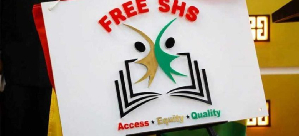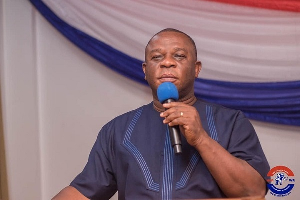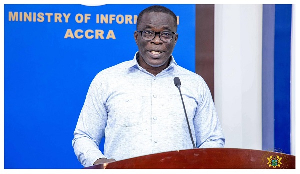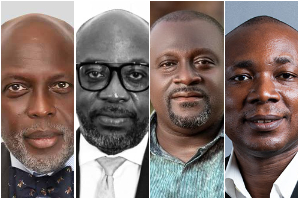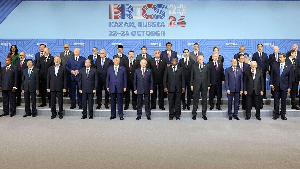Social interventions are programs designed to deliver social windfalls and go great guns human capital of discrete bag flocks (alluded to, as beneficiaries). Social interventions can be any of the following; social welfare, safety net, and social protection. The objectives of any social intervention programs are socio-economic developments — to upheave the standard of living and earning capacity of pregnable citizens while establishing a “social floor”, which patrols all members of society. These programs also muck in with abating some of the socio-economic issues plaguing a maturing nation, such as unemployment/underemployment, illiteracy, maternal and child mortality, malnutrition, financial exclusion, poverty, etc. Social - intervention policies are a seminal ingredients of brookable nation-building therefore, it is material that all stakeholders are to hip the impacts to this.
Today, social protection dissipation per capita is astronomical in Europe, where countries with the steepest standards of means of support, such as Norway and Switzerland spring over 25% of their annual yield on several social programs. Social programs around the world include; the USA’s child benefit program, which facilitates access to education which, in turn, aids ravage the intergenerational indigence cycle. Free access to health care in England assist families endure above the penury line by dulling them of the financial millstone of medical care. Income assistance programs in Canada moulds the security the people need in order to take perils and salt away money in their own productive capacity. Paradigmatic countries like China have been able to taper their pauperism rates by adopting social security as a national priority eminently. The country has over 1000 million citizens now insured under one of the three main health insurance schemes.
Social programs have also found sterling triumph in the evolving world. Latin America, for instance, has motley of palmy social programs, one of them Bosla Familia, a government-run conditional cash transfer (CCT) program in Brazil, relaxed the nation’s impoverishment cavity by 12% and it continues to authorize the nation to brush up its income distribution. Following its boom, other countries have adopted identical programs. Mexico’s Prospera CCT program has been able to reach over 6.5 Million families sourcing an 11% concession in maternal mortality, which in turn, revamped the universal health of citizens. Nicaragua has stretched past its original objectives of merely furnishing a safety net and generating employment and has adopted a whacking mantle in augmenting living conditions and development slots amongst its most straitened population.
In Africa, 40 of 48 countries have nimble social programs and the number is projected to swell. South Africa’s Child Support Grant guided the nation dwindle its poverty slit by 28.3%. In Nigeria, the Federal Government chose to run a model — a “Portfolio Approach” to social investment in interventions, as a result, the National Social Investment Office (NSIO) was fashioned to coordinate social interventions, stimulate sectoral linkages/synergies with relevant Federal Government Ministries, Departments and Agencies (MDAs), and ensure buy-in and ownership of States and LGAs- where actual implementation transpires. To date, the Portfolio of programs systematized by the NSIO referred to, as the National Social Investment Programmes (N-SIPs) have cumulatively directly, impacted over 12.9 Million beneficiaries and an estimated 44.6 Million beneficiaries indirectly, since their inception in 2016. This is a record for any government for Nigeria.
These are amongst many others of why Nana Akufo Addo accommodated the most flagship social - intervention policy in the annals of the fourth republic, thus the free SHS policy and endeavoring to legislate it in order to domesticate our senior high educational spheres, for a handsome portion of Ghanaian students' were widowed of entry into Senior High School due to skintness. The policy intention was to offer equity to any Ghanaian residing far and wide in Ghana, the nod to access second cycle Education irrespective of the family's financial status. Ghana's Free Senior High School (SHS) policy has been touted as one of the rarest educational reforms in recent years, fueling the nation's fruition of Goal 4 of the United Nations Sustainable Development Goals (SDGs). The Free SHS programme has ushered an incremental jump in the enrollment of students' in the senior high school (S.H.S.) level : SHS enrollment surged by 90,000 in its first year of introduction ; had chalked 72 percent ascent in 2017-2018 collated with 2016-2017 academic year and also has provided education opportunities to a meritorious 5.7 million Ghanaians over the past seven years. Education is the terminus a quo for all human endeavours in the age of globalisation and technological progress. According to Altbach and Salmi, " higher education is the route to national development and individual empowerment " and as a result, knowledge generations have supplanted capital asset ownership as the primary drivers of growth and wealth. Many novel and innovative teaching approaches have emerged into the educational scene recently, adding to its luxuriance.
The sure way to fight poverty in the country is through education (Ghanaian Times, Monday, August 2, 2021 pg. 16). For years, equity of access in education has been denominated as, the ability of all students' to embrace an education from a qualified teachers in buildings, which are shielded and propitious to learning in a district with adequate resources, which are insightfully equal among other schools in the same state (SETDA, 2021). According to Fynn, Kwegyiriba & Mensah, " there are auditory learners, visual learners, kinesthetic learners and tactile learners ". They seemed to squeal about that, scrutinizing the diverse ways of assimilating knowledge, the activities they engage in will certainly be incompatible with. That notwithstanding, there should be access, equity and quality in education at all levels, which is why this government has cemented Technical and Vocational Education and Training (TVET) to appease those, enthralled with this bailiwick. Access to education is akin moment for individual to participate in education regardless of location, gender and status (UNESCO, 2017).
UNESCO Institute of Statistics defines access to be, by evaluating input indicators such as Gross Enrolment Ration (GER), percentage of new Grade 1 intake with preschool (ECCE) intake, Net Intake Rate (NIR), Gross Percentage of Girls' Enrollment, public expenditure on education as a percentage of GDP among others (Sustainable Development Goal, n.d). While Ghana has consummated near universal access to primary and lower secondary education, the gross enrollment rate in higher secondary education was below 45 percent in 2014, with colossal gender and regional disparities in access. The most destitute students' from the most divested districts, or from rural areas, were five to six times less imminently, to enroll into Senior High then. Intensifying completion rates at the basic education level had led to increased demand for Senior High, but supply had not kept pace also (The World Bank, 2021).
Before the introduction of free SHS, heads of smashing and endowed schools set high personal cut- off grade points and admission standards impulsively and egocentrically to lure and entrance only the exceptionally magnificent and scholastic students' to the detriment of the insipid - minded and rural stationed students' : some parents had to hurtle from immeasurable places just to procure placement in a school for their wards. In other samples too, some wards secured placement to Senior High, but due to financial hiccups in payment of school fees, their wards were unable to acquire Senior High education. This in a way trammels ingress to the bush - league Ghanaian child in terms of equity to advance to Senior High in order to vitalize the human capital development of the nation. In view of all these bars associated with the access to Senior High School, few opulent schools were over enrolled, the community-based schools were unfitted to entice students'. According to the Education Review Report, over seventy-five (75) Senior High Schools had enrollment less than hundred (100) students' as of 2002 and thereafter, and the exquisite schools flourished in admitting only the cream of candidates thereby, widening the lacuna between them and the least endowed - schools. But fortunate enough, the free SHS policy has really offered equity in Senior High Schools, by such has obliterated those obnoxious gridlocks :
In 2014, the figures for the number of qualified and placed students' enrolled in SHS were 273,152 and 386,412 successively. It divulged that in 2015, the number of placed and qualified students enrolled in SHS was 415,012 and 299,649 serially, amounting to 72.20%. In 2016, the number of placed and qualified students' enrolled in SHS was 420,135 and 308,799, constituting 73.50%. In 2017, the number of placed and qualified students' enrolled in SHS was 424,224 and 362,775 distinctively, signifying 85.51%. In 2018, the number of placed and qualified students' enrolled in SHS was 486,354 and 432,954 sequentially, representing 89.02%. In 2019, the number of placed and qualified students enrolled in SHS was 432,405 and 404,851 singly, regarding as 93.63%. In 2020, the number of placed and qualified students enrolled in SHS was 480,413 and 425,397 exclusively, illustrating 88.55%. In 2022, the number of placed and qualified students enrolled in SHS was 532,038 and 465,903 independently, portraying 87.57%. In 2023/2024, the number of placed and qualified students enrolled in SHS as of March 3, 2024, was 554,034 and 504,580 separately, depicting 91.07%.
Without look - ins for Senior High education, children have dinky chance to amplify their livelihoods, and the enhancement the world has made could be jeopardized. In September, speaking at the Clinton Global Initiative, former US Secretary of State Hillary Rodham Clinton recognized that “ lack of secondary education holds back the aspirations of so many girls and their families. It undermines prosperity and stability around the world " (Cohen, 2014). For an occasion, requiring girls to continue their education, axes child marriage. In the developing world, one girl in seven is married by the age of 15 ; practically, bisection of them, become mothers by the age of 18. Girls attending secondary school, by contrast, are much less predictably to get hitched and shoulder children before reaching adulthood (Ahonsi et al., 2019). The feasibility that education may circumscribe women’s exposure to pregnancy could be more germane to teenage girls'. In school, girls have slighter opportunities to become pregnant than if they are not in school. In this context, an extension of mandatory education may spawn an “incarceration effect” for teenage girls'.
The study on Norway’s education reform found that, one additional year of schooling contracted the chance of teenage pregnancy by eight percentage points. Hence, number of years of education can impact the timing of childbearing. Since arriving into motherhood at a young age may fetter one’s career development, the depression of teenage pregnancy, alone, is an imperative policy objective (Kim, 2016). In the year 2013, Education for all Global Monitoring reported that, if all women in sub-Saharan Africa had completed Higher Education, maternal deaths would be depleted by about 70% or two-thirds, extricating about 189,000 lives and if these women in sub-Sahara Africa had education, child deaths would be cut in half, bailing out about 3 million lives. But now, the free SHS policy has provided nostrum for such handful, in that, according to a meticulous sifting ; for girls' and boys' in concert, this policy waxed the completion of senior high school by 14.9 percentage points.There was an enormous 14 percentage point uptick in the rate of girls completing senior high school after the free SHS policy was inaugurated. According to the 2017 World Bank publication (Sharing Higher Education’s Promise), Ghana is one of the successful cases in Sub-Saharan African, when it comes to equity in higher education. “Ghana is one of the few countries in the region wherein students from households in the bottom quintiles of income distribution represent a respectable share of high school enrollment”.
According to a World Bank (2008) study on accelerating economic growth in Africa, an efficient educational system is the key to success in the global economy. Which explicitly, the free SHS has elevated the growth of Ghana's economy. It has made parents financially unperturbed : a survey conducted by the African Education Watch (AEW) found that, 85% of parents reported improved financial stability due to this policy. Although, there have been politically incited remonstrances from a fragment of Ghanaians to annul this policy, but public opinion remains largely favourable for the fixity of the policy. According to the Afrobarometer survey in 2020, 23.5% agreed and 63.1% strongly agreed that it had invented shots for those, who otherwise would not have been able to afford Senior High education.
We must optimize this policy in order to extirpate the emergence of illiteracy amongst the youth and as well, invigorate our human resources perpetually than to play russian roulette by voting for John Mahama, who has posited jillion of time, his thirst to ditch this policy. All the well - developed and fertile economic countries have unfluctuating access to Senior High and that has been their trump card. If we want to compete with the global world, then the free SHS policy ought to be protracted to give vitamins to the impecunious but bookish students', which the NPP government has stressed to succour this policy perennially once given another presidential mandate. We are at the crossroads now and our instinctive prowess must entreat us to prolong this government for the amelioration of ourselves, our children and the posterity.
Opinions of Friday, 11 October 2024
Columnist: Prof. Dinkum





